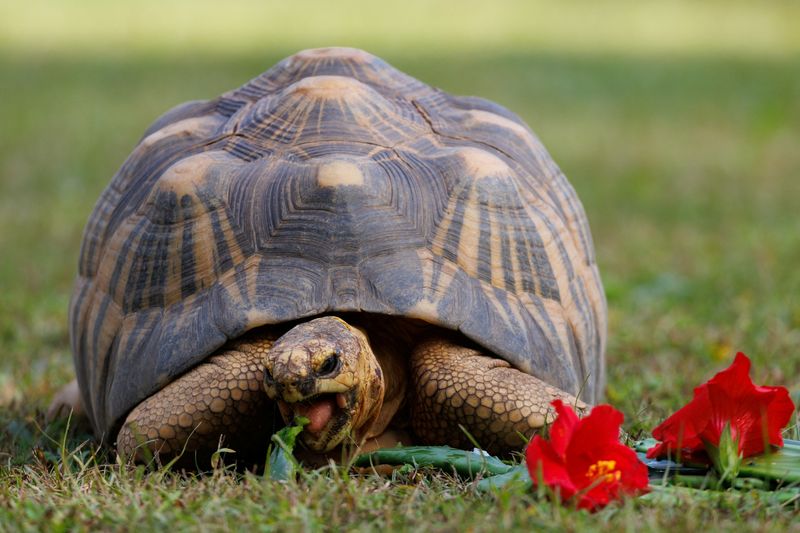By Mary Milliken and Jorge Garcia
LOS ANGELES (Reuters) - A crocodilian tomistoma clambers around his watery enclosure, a radiated tortoise munches on plants and a Bali myna songbird perches on a branch - all creatures seized from illegal wildlife trafficking and placed at the Los Angeles Zoo for care and a home.
In a drive to ensure wildlife caught up in the trade can survive and thrive, the U.S. Fish and Wildlife Service (FWS) has partnered with the Association of Zoos and Aquariums (AZA) to launch last week a pilot Wildlife Confiscations Network in Southern California.
Their goal is to roll the program out across the country and to other trafficking hot spots like Miami and El Paso, Texas.
Southern California is considered an epicenter for trafficked wildlife, much of it from Asian countries. Monkeys, tigers, exotic birds for the pet trade and trophies, reptiles and sea cucumbers for food and medicinal purposes.
"It's based in human need and greed and these animals are being trafficked all around the world and basically for profit," said Dan Ashe, president and CEO of the AZA and a former director of the FWS, who calls it "very much an American problem."
Criminal networks and syndicates have built illegal wildlife trade into a multi-billion dollar a year criminal enterprise, Ashe said. Between 2015 and 2019, the FWS had to find care and homes for nearly 50,000 trafficked animals linked to more than 800 criminal referrals.
Moka was a Bengal tiger cub that two individuals tried to smuggle across the border from Mexico to California in 2017. They were arrested and Moka got zoo veterinary care and now lives at Lions, Tigers and Bears Rescue near San Diego.
Speed is of essence when live specimens are refused clearance at ports or airports and seized or abandoned, requiring urgent care from experts to survive. Some, like the Bali myna, are critically endangered species under the international CITES treaty with fewer than 100 of the white songbirds with the distinctive blue eye markings in the wild.
"The hope is that we can get that animal to a high enough health and start breeding and getting into a really nice healthy populations in zoos and aquariums," said Jake Owens, director of conservation at the Los Angeles Zoo.
They also need to ensure confiscated animals will not spread diseases to other animals or humans.
TRAUMA FOR ANIMALS
The trafficked animals often come in dire conditions, strapped to smugglers' legs, in luggage wrapped up in cellophane or toilet paper rolls, Owens said. Their mouths may be taped shut so that they can't make noise and they might endure multiple flights.
"These animals have been going through a really traumatic experience," Owens said.
Star, a Bali myna at the LA Zoo, was illegally captured in Bali, stuffed into a sock and hidden in a suitcase before being discovered by law enforcement agents at Los Angeles International Airport, known as LAX. She and her mate had three chicks and are now grandparents.
In a giant warehouse at LAX, FWS inspectors and sniffer canine Braxton go through shipments of live tropical fish and coral headed to the aquarium industry, looking for anything that might not be legal.
"Without the proper paperwork, some species are not allowed in," said Rene Galindo, a supervisory wildlife inspector. "If some of those species are part of the CITES network, it is affecting wild populations, future trade, it can decimate populations if we continue bringing in those species without the proper permits."
Back at the FWS Office of Law Enforcement, a room holds taxidermied trafficked animals and birds, horns and ivory.
"I understand there is a need or demand for a lot of these things," said Ray Hernandez, wildlife inspector and canine handler. "The message that we try to get out there is that there is a legal way to do all of this. And we try to facilitate that."

Most confiscated animals will remain at zoos or aquariums, but some could be released back into the wild, conditions permitting.
"We need to make sure that the threats that exist in the wild, the traffickers, the people who are taking them from the wild in the first place, aren't going to take that animal again," said Owens.
